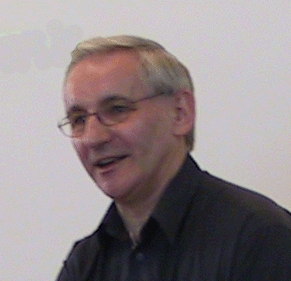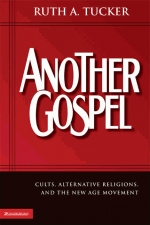Related Research Articles

Pentecostalism or classical Pentecostalism is a Protestant Charismatic Christian movement that emphasizes direct personal experience of God through baptism with the Holy Spirit. The term Pentecostal is derived from Pentecost, an event that commemorates the descent of the Holy Spirit upon the Apostles and other followers of Jesus Christ while they were in Jerusalem celebrating the Feast of Weeks, as described in the Acts of the Apostles.

Dan Mark Cohn-Sherbok is a rabbi of Reform Judaism and a Jewish theologian. He is Professor Emeritus of Judaism at the University of Wales.

The charismatic movement in Christianity is a movement within established or mainstream Christian denominations to adopt beliefs and practices of Charismatic Christianity with an emphasis on baptism with the Holy Spirit, and the use of spiritual gifts (charismata). It has affected most denominations in the US, and has spread widely across the world.

Religion in Canada encompasses a wide range of groups and beliefs. Christianity is the largest religion in Canada, with Catholicism being its largest denomination. Christians, representing 53.3% of the population in 2021, which has fallen from 67.3% in 2011, are followed by people having no religion at 34.6% of the total population. Catholics represent 29.3% while Protestants represents 20.3%. Catholics have declined 2 million followers in just ten years. Other faiths include Islam (4.9%), Hinduism (2.3%), Sikhism (2.1%), Buddhism (1.0%), Judaism (0.9%), Indigenous spirituality (0.2%) and Jainism (0.1%).

Prem Pal Singh Rawat, formerly known as Maharaji, is an international speaker and book-author. His teachings include a meditation practice he calls "Knowledge", and peace education based on the discovery of personal resources such as inner strength, choice, appreciation and hope.

The Toronto Blessing, a term coined by British newspapers, refers to the Christian revival and associated phenomena that began in January 1994 at the Toronto Airport Vineyard church (TAV), which was renamed in 1996 to Toronto Airport Christian Fellowship (TACF) and then later in 2010 renamed to Catch the Fire Toronto. It is categorized as a neo-charismatic Evangelical Christian church and is located in Toronto, Ontario, Canada. The revival impacted charismatic Christian culture through an increase in popularity and international reach and intensified criticism and denominational disputes. Criticism primarily centered around disagreements about charismatic doctrine, the Latter Rain Movement, and whether or not the physical manifestations people experienced were in line with biblical doctrine or were actually heretical practices.
Prosperity theology is a religious belief among some Protestant Christians that financial blessing and physical well-being are always the will of God for them, and that faith, positive speech, and donations to religious causes will increase one's health and material wealth. Material and especially financial success is seen as a sign of divine favor.
Benjamin Zablocki was an American professor of sociology at Rutgers University where he taught sociology of religion and social psychology. He published widely on the subject of charismatic religious movements, cults, and brainwashing.
A doomsday cult is a cult that believes in apocalypticism and millenarianism, including both those that predict disaster and those that attempt to destroy the entire universe. Sociologist John Lofland coined the term doomsday cult in his 1966 study of a group of members of the Unification Church of the United States: Doomsday Cult: A Study of Conversion, Proselytization, and Maintenance of Faith. In 1958, Leon Festinger published a study of a group with cataclysmic predictions: When Prophecy Fails: A Social and Psychological Study of a Modern Group that Predicted the Destruction of the World.

Irving R. Hexham is an English-Canadian academic who has published twenty-three books and numerous articles, chapters, and book reviews. Currently, he is Professor of Religious Studies at the University of Calgary, Alberta, Canada, married to Karla Poewe who is Professor Emeritus of Anthropology at the University of Calgary, and the father of two children. He holds dual British and Canadian citizenship.

Bounded Choice: True Believers and Charismatic Cults is a 2004 psychology and sociology book on cults by Janja Lalich. It was published by University of California Press.
Stephen John Hunt is a British professor of sociology at the University of the West of England. Prior to his appointment at the University of West England in 2001, Hunt had taught at the Sociology Department at the University of Reading for thirteen years, as well as in the Religious Studies Department at the University of Surrey, Roehampton.

Another Gospel: Cults, Alternative Religions, and the New Age Movement is a non-fiction book discussing new religious movements and the New Age movement, written by Ruth A. Tucker. The book was published in 1989 by Zondervan, a Christian publishing house. Another edition was released by the same publisher in 2004.

A nature religion is a religious movement that believes nature and the natural world is an embodiment of divinity, sacredness or spiritual power. Nature religions include indigenous religions practiced in various parts of the world by cultures who consider the environment to be imbued with spirits and other sacred entities. It also includes modern Pagan faiths, which are primarily concentrated in Europe and North America.
Buddhist modernism (also referred to as modern Buddhism, modernist Buddhism, and Neo-Buddhism are new movements based on modern era reinterpretations of Buddhism. David McMahan states that modernism in Buddhism is similar to those found in other religions. The sources of influences have variously been an engagement of Buddhist communities and teachers with the new cultures and methodologies such as "Western monotheism; rationalism and scientific naturalism; and Romantic expressivism". The influence of monotheism has been the internalization of Buddhist gods to make it acceptable in modern Western society, while scientific naturalism and romanticism has influenced the emphasis on current life, empirical defense, reason, psychological and health benefits.
Lorne L. Dawson is a Canadian scholar of the sociology of religion who has written about new religious movements, the brainwashing controversy, and religion and the Internet. His work is now focused on religious terrorism and the process of radicalization, especially with regard to domestic terrorists.
Holy laughter is a term used within charismatic Christianity that describes a religious behaviour in which individuals spontaneously laugh during church meetings. It has occurred in many revivals throughout church history, but it became normative in the early 1990s in Neo-charismatic churches and the Third Wave of the Holy Spirit. Many people claimed to experience this phenomenon at a large revival in Toronto, Ontario, Canada known as the Toronto Blessing.
Margaret M. Poloma is an American sociologist, professor, and author who is known for her research on the Pentecostal movement in American Christianity.
Veli-Matti Kärkkäinen is a Finnish theologian. He is Professor of Systematic Theology at Fuller Theological Seminary. He is an ordained Lutheran minister and an expert on Pentecostal-Charismatic theologies.

Charismatic Christianity is a form of Christianity that emphasizes the work of the Holy Spirit and spiritual gifts as an everyday part of a believer's life. Practitioners are often called Charismatic Christians or Renewalists. Although there is considerable overlap, Charismatic Christianity is often categorized into three separate groups: Pentecostalism, the Charismatic movement, and the Neo-charismatic movement.
References
- 1 2 "Simon Coleman". University of Toronto Study of Religion. University of Toronto. Retrieved December 6, 2011.
- ↑ Grau, Marion (2004), Of divine economy: refinancing redemption, Continuum International Publishing Group, p. 28, ISBN 978-0-567-02730-6
- ↑ Hocken, Peter (2009), The challenges of the Pentecostal, Charismatic, and Messianic Jewish movements: the tensions of the spirit, Ashgate Publishing, p. 48, ISBN 978-0-7546-6746-9